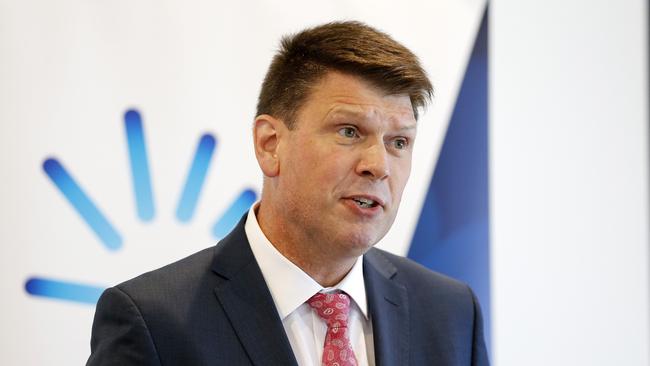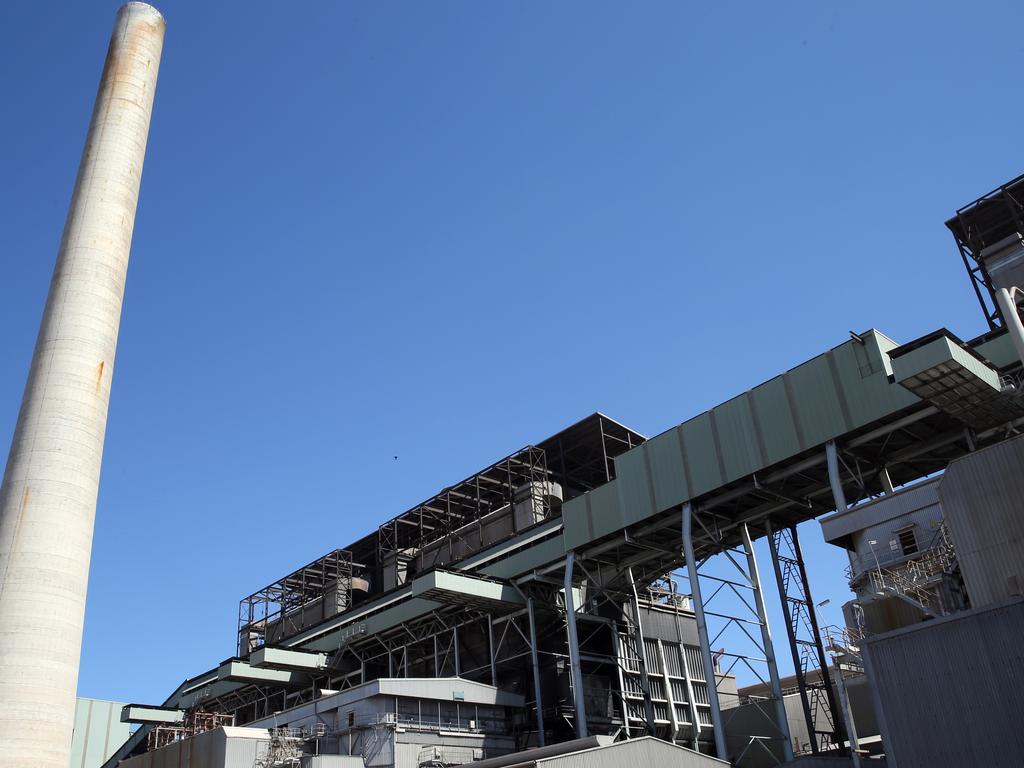Energy industry hits out at plan as government threatens intervention
The energy industry has hit back at the government’s plan for potential intervention in the power sector, saying the move may derail investment.

The energy industry has hit back at the federal government’s plan for potential intervention in the power sector claiming the move may derail the investment it is seeking to shore up supply.
The Australian Energy Council, which represents the industry’s biggest operators including AGL Energy and Origin Energy, said the move may end up being counter-productive.
It noted statements from the Commonwealth’s own Energy Security Board that government interventions or even discussions and ‘threats’ of intervention act as a deterrent.
“The sector is struggling to make final investment decisions in an environment of ongoing policy uncertainty,” AEC chief executive Sarah McNamara said.
“The government’s earlier plan to underwrite new generation projects in the market also remains under consideration, and this too contributes to the ongoing uncertainty, together with various and competing State-based renewable energy targets. There are no material reliability concerns that would warrant this kind of interventionist
approach, and there are already mechanisms in place to address any shortfall identified.”
The government-owned Snowy Hydro is already moving ahead with a plan to build a gas generator in the Hunter Valley at Kurri Kurri.
A proposal to develop new pipelines to boost the flow of gas in the east coast market may hold merit but should not be underwritten by the government, the AEC said. As with the electricity sector, the government wants private industry to build new pipelines to open up supply but said it will step in should the market fail to act.
“We understand and support the federal government’s desire to facilitate competitive access to gas, but planning should be done independently of government through Australian Energy Market Operator advice, followed by private investment in infrastructure that is not underwritten by government.”
AGL hits back
Responding to the government’s plan, AGL Energy defended its record after the government accused the private sector of only committing to a single 100 megawatt expansion of dispatchable generation since April 2015 when the power giant gave notice of plans to close its Liddell coal plant in NSW.
Energy Minister Angus Taylor said the private sector had until April to commit to build 1000MW of new power capacity to ensure there was a like-for-like replacement for Liddell, which will close down in the 2022-23 summer. Only a 100MW expansion of AGL’s Bayswater coal plant had been undertaken in the last five years, Mr Taylor said.
“AGL has led investment in Australia’s energy market, including the building of the only new gas generation on the east coast in the last seven years at Barker Inlet, the investment in a 100MW efficiency upgrade at our Bayswater power station and the development of other firming and storage technology to support the use of renewables as part of the energy mix,” AGL chief executive Brett Redman said. “Only last month we announced our plans to develop 850MW of battery storage capacity across the eastern states by 2024.”
One near-term investment which remains in the mix for AGL is its proposed 250MW Newcastle gas-fired power plant at Tomago.
“We’ve made good progress on this proposed development at Newcastle with the environment approval process underway and a final investment decision expected by early 2021,” Mr Redman said.
The government has been considering extending the life of Liddell or replacing the baseload station which supplies more than 10 per cent of the state’s power needs. Its Liddell Taskforce found closing the AGL plant without the required dispatchable replacement capacity risks prices rising by around 30 per cent over two years, or $20 per megawatt hour to $80 in 2024 and up to $105 per MWH by 2030.
Mr Taylor said the government would not fund an extension of all or part of Liddell but has kept the door ajar to private investors to extend the life of the coal plant to ensure low cost generation remains in the electricity system. Power baron Trevor St Baker has previously signalled his interest, along with Alinta Energy which runs Victoria’s Loy Yang B coal plant.
But AGL said there would be no change to its timeline for closing Liddell.
“With today’s announcement we will continue our closure and transition plans for Liddell with certainty, while at the same time progressing our investments in projects that transition our energy portfolio, with a focus on dispatchable and firming technology that deliver on our customers’ needs,” Mr Redman said.
Sitting on the sidelines
Meanwhile Credit Suisse analysts warned the government’s plan to boost a national gas trading hub would struggle to achieve any benefits for the market.
As part of its east cost energy plan, the government introduced a raft of measures aimed at resetting the gas market after big manufacturers complained they were unable to secure long-term supplies at affordable prices, putting them at a disadvantage to international rivals.
But a proposal to emulate the US Henry Hub gas facility by expanding the existing Wallumbilla facility in Queensland faced a raft of hurdles, given Australia’s smaller market, and may little in added benefits, Credit Suisse said.
“We doubt a Henry Hub-like hub can be achieved in Australia absent a government mandate, given market depth and structural constraints,” Credit Suisse analyst Saul Kavonic said. “We also doubt a hub would achieve any material benefit for market participants beyond price transparency - which isn’t really the core issue for manufacturing. A more liquid hub could be mandated by government via various means, but the unintended risks this could pose for long term supply security could easily outweigh the modest benefits a hub may present in a market the size of eastern Australia.”
The centralised gas hub concept has been touted for some time by former Dow boss Andrew Liveris who advised the government’s National Covid Coordination Commission on how manufacturing could help boost the economy out of the pandemic.
The prospect of federal funds for new supply if the private sector failed to step up could see the move backfire, Credit Suisse said.
“The government message appears to threaten industry to invest in what the government wants to see, otherwise the government will do so itself. This could become a self-fulfilling prophecy for the gas infrastructure sector, as industry may now sit back and wait to receive government funds to do what they might have done anyway,” Mr Kavonic said.






To join the conversation, please log in. Don't have an account? Register
Join the conversation, you are commenting as Logout